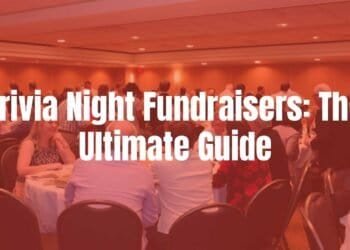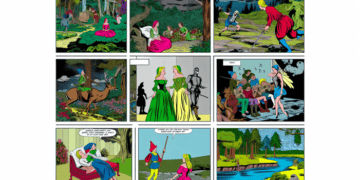Running a great trivia night takes solid prep and a bit of playful improv. It’s about asking good questions and building a fun shared experience that challenges, makes people laugh, and brings teams together. Whether you’re hosting at home, in a busy pub, or for a fundraiser, the basics are the same: set clear rules, write strong questions, use fair scoring, and create a welcoming vibe. This guide walks you through each step so your event feels smooth, fair, and memorable.
The secret to a standout trivia night is a format that entertains while genuinely testing knowledge. With the right setup, a simple quiz becomes a lively social event people talk about long after the final scores are posted.
What is a Trivia Night and Why Host One?
A trivia night is a social game where people, usually in teams, compete by answering questions across many categories. It’s a mix of general knowledge, special interests, and sometimes lucky guesses. Formats vary, but the idea stays the same: groups gather to test what they know in a fun, friendly contest.
These events are common in homes, bars, and community spaces. Anyone can join, and it feels great to pull a fact from memory or help your team. It’s an easy way to engage a crowd and create shared moments.
What Happens at a Trivia Night Event?
Most trivia nights run in rounds. A host (quiz master or emcee) reads questions, often with slides or visuals. Teams discuss and write answers within a time limit. After each round, the host shares answers, scores the sheets, and updates a leaderboard to build tension and friendly rivalry.
Topics range widely: history, science, sports, music, film, and more. Some nights use general knowledge; others focus on a single theme. Energy builds toward the final reveal, when the winning team gets prizes and bragging rights.

Benefits of Hosting Trivia Night
Trivia nights do far more than fill an evening. They can help businesses, nonprofits, and private groups reach their goals.
- For venues like bars and restaurants: draw bigger crowds on slow nights, increase sales, and build loyal regulars.
- For teams, clubs, and families: encourage teamwork, highlight different strengths, and offer low-pressure competition.
- For fundraisers: raise money in a fun, cost-friendly way while supporting a cause.
Popular Trivia Night Formats and Theme Ideas
Trivia is flexible. You can fit the format and theme to your crowd so the night feels fresh and exciting. Going beyond basic Q&A can boost engagement a lot.
The right format and theme can lift a good event into a great one. Choose options that fit your audience to make the night feel personal and memorable.
Classic Pub-Style Trivia
This tried-and-true format has teams seated with drinks and snacks, answering rounds of general questions read by the host. Collect and score answer sheets, and show a running tally. The mood is relaxed but competitive, with light banter adding to the fun. It works well in many spaces, from bars to community halls, and is easy for newcomers to enjoy.
The broad appeal lets everyone contribute, even if they’re not trivia buffs.
Jeopardy-Style and Game Show Formats
If you want a more structured, high-energy game, try a Jeopardy-style board with categories and point values where answers are in question form. You can also add buzzers, lightning rounds, or formats like a 3×3 grid where teams aim for three in a row.
These setups need more tech, like a projector and sound for buzzers. The extra work often pays off with fast, interactive play that keeps people hooked.
Themed Nights: TV, Movies, Holidays, and More
Themed events go deep on one topic and attract fans. A “Friends” night could focus on Central Perk, Ross and Rachel, and Phoebe’s songs. Film lovers might enjoy “Cinema Trivia” with categories like actors, awards, and iconic scenes-costumes welcome. Holiday themes, like Christmas-in-July or Halloween, add seasonal fun.
Other hits: music by decade or genre, personal trivia for team building, or creative ideas like “Edible Trivia” with tasting questions. A strong theme can boost turnout and hype.
Virtual and Hybrid Trivia Options
You don’t need a physical venue. Video tools like Zoom let players join from anywhere, form teams, and submit answers online. Hybrid events mix in-person and remote play to reach a wider audience at the same time.
Specialized trivia software can handle scoring, questions, and leaderboards. With good planning and an engaging host, online and hybrid events can feel just as lively as in-person nights.
Key Decisions Before Hosting Trivia Night
Before you start writing questions and rules, make a few big choices. These calls shape your budget, tech needs, and the mood of the night.
Thinking through these points early gives you a clear plan and a smoother setup.
Choosing Venue: In-Person vs Virtual
Pick where your event will happen. In-person nights (home, bar, restaurant, community center) shine because people can react together and feed off the room’s energy. Check the room size, sound, and seating, and whether it fits your gear and expected crowd.
Virtual nights are flexible and reach anyone online. Hybrid setups offer both, but they take more coordination to keep the experience smooth for everyone.
| Option | Pros | Plan For |
|---|---|---|
| In-Person | Live energy, easy team chats, clear crowd feedback | Space, sound, projector/screens, seating, prize table |
| Virtual | Wide reach, easy scheduling, no travel | Stable internet, screen sharing, breakout rooms, simple submission |
| Hybrid | Best of both worlds, bigger audience | Syncing audio/visuals, fair timing, extra host or tech help |
Target Audience and Group Size
Know who you’re hosting. Friends, coworkers, families, or the public? Audience age and interests set question topics, tone, and prize types. Young professionals might like pop culture; family events fit broader topics.
Size matters too. Small groups can use more personal questions and casual scoring. Big crowds need reliable systems for teams, questions, and scores. Decide on audience and size early so every other choice fits.
Selecting a Theme and Format
Once you know your crowd and venue, choose a theme and format. Pick something that your players care about-maybe a TV show, a decade, or a holiday.
Then pick the format: pub-style, game show, or something unique. Think about your gear, your host’s comfort level, and the mood you want. A good fit makes the whole night click.
Trivia Night Setup and Preparations
With the big choices made, it’s time to set up. Good prep keeps things running smoothly and avoids last-minute stress.
Careful attention to these details reduces your workload mid-event and helps players focus on the fun instead of logistics.
Arranging Equipment and Materials
For in-person events, gather:
- Microphone and speakers so everyone can hear
- Projector and screen for questions, images, and leaderboards
- Printed rule sheets, answer sheets, and plenty of pens
- Score sheets, clipboards, or a scoring app
For virtual events, use a reliable computer with a good webcam and mic, plus stable video software. Keep backups handy-extra device, printed questions-so small tech issues don’t stop the game.
Technical Considerations for Online and In-Person Events
Tech can lift your event, but test it first. For in-person nights, run a full check: projector output, slide formatting, audio levels, and any digital scoring tools. In large rooms, two screens might help. Having a tech helper nearby is a smart move.
For virtual nights, test internet speed, webcam, mic, screen share, and breakout rooms for team chats. Keep a backup plan, like reading questions aloud if slides fail.
Room Layout or Digital Setup
Layout affects how people feel and focus. For in-person events, set tables so teams sit comfortably and can see screens. Number tables or display team names. Give the host a well-lit spot with easy access to gear. Big events benefit from a separate judging station. Clear signs for check-in, restrooms, and food help a lot.
For virtual events, set a clean host view and decide how teams will meet (pre-set teams, random breakout rooms). Use clear slides and a visible leaderboard to keep people engaged.
Securing Prizes and Refreshments
Prizes boost motivation. Gift cards are classic, but you can also offer local experiences, merch, or a “VIP” package. Fundraisers might give a share of funds raised or tickets to future events. Show the prizes early to build buzz.
Snacks and drinks keep energy up. Bars and restaurants already have options. Other venues can sell or include refreshments, or allow BYO to save costs.
How to Create Great Trivia Questions
Strong questions are the core of any trivia night. Good writing keeps players thinking, smiling, and ready for the next round. This is where your creativity shines.
Balance broad appeal with specific knowledge so everyone can help while the game still feels challenging.
Selecting Topics and Categories
Pick topics your audience likes. Mix categories so different players can contribute. Popular choices: history, geography, science, literature, music, movies, sports, and current events. For themed nights, match every category to your theme.
Add a few quirky “wildcard” questions for surprise. Picture rounds-identify landmarks, logos, or movie stills-are always popular and add a visual twist.

Writing Clear, Fair, and Engaging Questions
Once you pick topics, start writing. Aim for short, clear wording. Avoid vague phrasing. Make sure there’s a single correct answer that isn’t open to wide debate. Keep things lively with a touch of humor or a fun fact.
Skip questions that are so obscure they frustrate people or so easy they’re boring. The goal is teamwork and thought, not quick searches. Add audio clips for music and short video or image clues for film and TV.
Balancing Difficulty and Variety
Mix easy, medium, and hard. For a set of ten, try three easy, three medium, three hard, and one wildcard. The steady climb keeps tension up and gives every team wins along the way.
Use different question styles: straight facts, multi-step clues, or logic-based prompts. Variety keeps the game lively and fair.
Fact-Checking and Answer Verification
Carefully check every question and answer before the event. Even simple facts can change or have details you missed. Accurate answers protect your credibility and help settle disputes. Prepare one or two tiebreakers too.
Knowing your topics well helps you clarify wording on the fly without giving away answers. This prep builds confidence and keeps the night running smoothly.
Establishing Trivia Night Rules and Scoring
Clear rules make the game fair and smooth. Without them, even great questions can cause confusion.
Share the rules upfront so players can relax and enjoy the contest instead of worrying about how it works.
Team Structure and Participation Rules
Decide how teams form. Let people self-organize or assign them. Teams of 4-6 work well, balancing voices without letting one person take over. Share limits in advance. Solo players are welcome; consider pairing them up for a better experience. Keep phones away during play to prevent cheating.
Explain how to submit answers (one sheet or form per team) and any limits on outside help. Hand out a rule sheet at check-in or show rules on the first slide.
Scoring Systems and Tiebreakers
Use a clear point system. Say how many points each question is worth and whether harder questions score higher. For big events, a scoring app can track points and show live standings. For small groups, organized paper scoring works fine.
- Double-check scores after each round.
- Display current standings where everyone can see them.
- Have one or two tiebreakers ready (specific facts or closest-to-the-pin guesses).
Dispute and Cheating Prevention
Disagreements happen. Set a simple process to review answers-either the host decides or the host checks a trusted source and reports back. Stay calm and friendly, and review after the round if needed.
Cheating kills the fun. Remind everyone of the “no phones” rule and rely on the honor system. A friendly, fair spirit helps keep play honest.
Tips for Hosting a Successful Trivia Night
Beyond logistics, the host sets the pace and mood. A strong host can lift a solid event into a great one with clear delivery, good timing, and warm energy.
Your preparation, tone, and connection with the room shape how much fun people have.
Setting the Tone and Engaging Participants
Bring energy from the start. Be confident and playful. Add quick jokes or fun facts between rounds. Encourage friendly chatter and make new players feel welcome.
Match your style to the crowd. Keep it casual for friends, more polished for fundraisers. Aim for a comfortable space where people feel connected.
Pacing Rounds and Breaks
Good timing keeps people engaged. Too slow is dull; too fast feels rushed. Try 5-8 rounds, with enough time for discussion and submission. After each round, pause to collect and score. Add a 5-minute break or two for snacks and restrooms.
- Announce when each round starts and ends.
- Give a 1-2 minute warning before collecting answers.
- Share scores on a steady cadence.
Managing Team Dynamics and Keeping Energy High
Watch the room. If a category is too hard or easy, adjust on the fly. Cheer teams on and celebrate good answers. If one team is far ahead, highlight close chasers to keep tension up.
When revealing answers, build a little suspense. Read team names and scores after each round so everyone stays invested.
Handling Unexpected Situations
Even the best-planned shows hit snags-mic issues, projector problems, heated debates, or a rowdy table. Stay flexible and upbeat. Keep backups for tech. If an answer is unclear, explain your source and move on. If needed, reword a question without hinting at the answer.
Handle surprises with a calm manner. Confidence from the host keeps players relaxed and focused.
Promoting Your Trivia Night Event
Once your plan is set, the next key step is getting the word out. A well-run event needs people in the seats-or in the Zoom rooms-to shine.
Good promotion connects your planning with a full house, turning prep into a lively night.
Effective Marketing Strategies
To get a strong turnout, use multiple channels. If you’re at a venue, run ads on in-house screens with digital signage, and post flyers where regulars will see them.
Online, use Instagram, Facebook, and X (formerly Twitter). Share event details, themes, and fun hints about categories. Send email invites to your lists. For public events, post on local boards, event sites, or even local radio. For virtual nights, send a clear calendar invite with the meeting link and simple joining steps.
Collaborations, Sponsorships, and Special Offers
Partner with local businesses. A bar can team up with a nearby restaurant for prize vouchers. Community events can add sponsors who support a round or cover specific costs. These partners provide prizes and help spread the word.
Offer specials to draw crowds and boost spend: themed drinks, extended happy hour, or VIP tickets with snacks for fundraisers. Use promo codes for discounted entries or group tickets. Give people one more reason to show up.
Frequently Asked Questions about Hosting Trivia Night
Many hosts ask similar questions. Clear answers make planning easier and help your guests know what to expect.
Sorting out these details helps you set a clean schedule and keep the night organized.
How Long Should Trivia Night Last?
Plan for 60-120 minutes (one to two hours). That allows enough rounds without dragging. The length depends on your venue, crowd, and question count. Home games often run about an hour; bars and fundraisers can go closer to two hours with breaks. Leave time for intros, rules, answer collection, scoring, and winners.
How Many Questions Per Round?
Most rounds use 5-10 questions. That’s enough to feel complete without rushing team talks. Tough questions may call for fewer; quick ones can fit more. Total questions for the night often land between 40 and 60 across 5-8 rounds. Keep a few extras for backups and ties.
Should You Charge Entry or Offer Prizes?
It depends on your event. For a casual night with friends, skip the entry fee. For fundraisers, charge per person or team to support the cause. Bars and restaurants might charge to fund prizes or cover costs, though many skip fees to attract more patrons and rely on food and drink sales.
Prizes help a lot. Even small rewards-bragging rights, a round of drinks, or a gift card-raise excitement. Fundraisers can offer bigger prizes like cash, a share of funds raised, or future event tickets. Prizes push competition and make a win feel special.
Key Takeaways for Hosting Trivia Night
Hosting trivia brings people together, sparks curiosity, and creates stories they’ll share later. Turning an idea into a packed, upbeat night takes planning, creativity, and flexibility.
Great trivia is about more than who scores highest. It’s about shared laughs, teamwork, and those “aha!” moments. Roll with surprises, connect with your crowd, and let your energy lead the way. If players leave entertained, connected, and a bit smarter, you nailed it. Go plan that quiz and enjoy being the host of a fun night of facts and friendly competition!








































